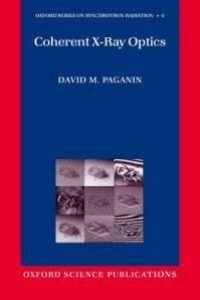
Liknande böcker
Quark-Gluon Plasma: Theoretical Foundations
Bok av J. Kapusta
The purpose of this volume is to trace the development of the
theoretical understanding of quark-gluon plasma, both in terms of the
equation of state and thermal correlation functions and in terms of
its manifestation in high energy nuclear collisions. Who among us has
not wondered how tall a mountain is on a neutron star, what happens
when matter is heated and compressed to higher and higher densities,
what happens when an object falls into a black hole, or what happened
eons ago in the early universe? The study of quark-gluon plasma is
related in one way or another to these and other thought provoking
questions. Oftentimes the most eloquent exposition is given in the
original papers. To this end a selection is made of what are the
most important pioneering papers in this field. The early 1950s was
an era when high energy multiparticle production in cosmic ray
interactions attracted the attention of some of the brightest minds
in physics, and so it should be no surprise that the first reprinted
papers deal with the introduction of statistical models of particle
production. The quark model arose in the 1960s, while QCD as such
was recognized as the theory of the strong interactions in the
1970's. The behavior of matter at high temperatures and supranuclear
densities became of wide interest in the nuclear and particle physics
communities starting in the 1970s, which is when the concept of
quark-gluon plasma became established. The history of the field has
been traced up to the early 1990s. There are three reasons for
stopping at that point in time. First, most of the key theoretical
concepts and formalisms arose before 1993, although many of them
continue to be developed today and hopefully well into the future.
Second, papers written after 1992 are much more readily available
than those writen before due to the advent of the World Wide Web and
its electronic preprint databases and journals. Finally, in making
this collection of reprints available as hardcopy one is limited in
the number of pages, and some papers in the present selection should
have been deleted in order to make room for post-1993 papers. For the
same reason the subject focus must of necessity be limited, which
means that in this reprint collection two wide subject areas are not
addressed: the behavior of nuclear matter under extreme conditions
is not reported, nor is quark matter in neutron stars. The broad
categories into which the material has been placed, reflect the
diverse studies of quark-gluon plasma and its manifestation. They
are: phase-space models of particle production, perturbative QCD
plasma, lattice gauge theory, fluid dynamics and flow, strangeness,
heavy flavor (charm), electromagnetic signals, parton cascade and
minijets, parton energy loss and jet quenching, Hanbury Brown--Twiss
(HBT) interferometry, disoriented chiral condensat...
Visa pris inkl. frakt Inkl. frakt
Quark-Gluon Plasma: Theoretical Foundations
1709 kr
Finns i lager
Quark-Gluon Plasma: Theoretical Foundations
2026 kr
Finns i lager







